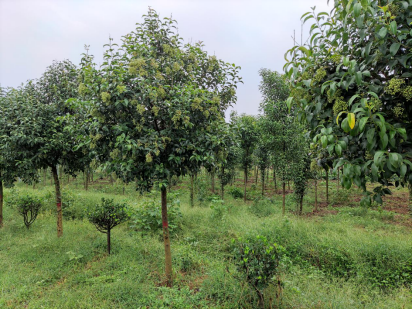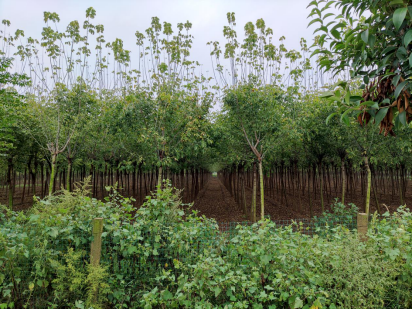
Forestry carbon sink refers to the process, activities, or mechanisms by which carbon dioxide in the atmosphere is absorbed through the photosynthesis of vegetation and then sequestered in vegetation or soil, thus reducing the concentration of carbon dioxide in the atmosphere. As an important type of project under the Flexible Mechanisms of the Kyoto Protocol, the development and trading of forestry carbon credits is an effective market approach to achieving the transformation of ‘green mountains and clear waters into mountains of gold and silver.’ At the same time, forestry carbon projects play a crucial role in achieving the national carbon neutrality goals and are an essential component of China’s climate change strategy, significantly advancing the country’s ecological civilization construction.
The ‘Henan Fangcheng and Tanghe Afforestation Project’ harnesses the strong carbon sequestration capabilities of forests, with the aim of increasing the carbon sink capacity of forests and reducing the overall CO2 content in the atmosphere to mitigate global climate warming. This project introduces the concept of carbon sinks into afforestation, enhancing the functionality of forest ecosystems in the project area, reducing soil erosion, protecting biodiversity, beautifying the local ecological environment, and moving closer to the ‘green mountains and clear waters’ goals. Additionally, it provides ample employment opportunities for local residents, alleviates employment pressure as well as increases the economic income of local farmers in the project area, improves their quality of life, and promotes sustainable development of the economy, society, and ecological environment.
Both Fangcheng County and Tanghe County are part of Nanyang City, Henan Province. To promote local sustainable development, especially in reducing soil erosion, the local government has formulated an integrated management model. Afforestation has been carried out on degraded land in Fangcheng County and Tanghe County, covering an area of 26,911 hectares. Saplings of various tree species such as poplar, black locust, Chinese juniper, torch pine, scots pine, softwood, and hardwood have been planted. QYH designed and implemented a carbon sink afforestation project for Fangcheng and Tanghe counties under the Verified Carbon Standard (VCS) mechanism. And successfully completed the project development in April 2021. The project has a lifespan from 2015 to 2075, a total of 60 years. It is estimated that 27,001,989 tCO2e of greenhouse gas emissions will be removed over the 60-year period, with an annual average removal of 450,033 tCO2e. The first issuance of carbon credits has been successfully traded.



Leave a Reply